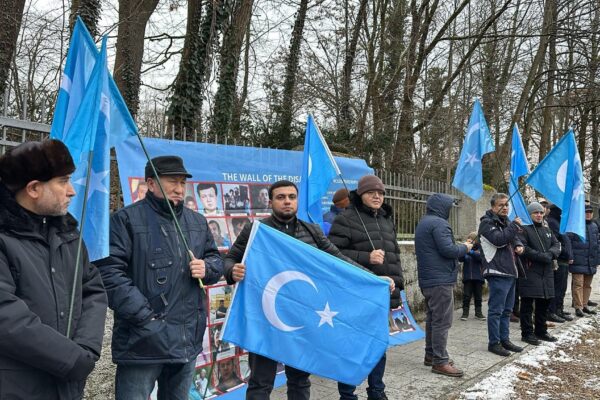North Korea vows to bolster nuclear force as US, allies push for denuclearization
TAIPEI, Taiwan – North Korea said Tuesday it will stick to its policy of bolstering its nuclear forces, days after the United States, Japan and South Korea reaffirmed their goal of the complete denuclearization of the North. The top diplomats of the U.S. and its two Asian allies on Saturday also decried “systematic, widespread and gross” violations of human rights in the reclusive state. The North’s foreign ministry dismissed denuclearization as an “unrealistic and failed concept,” condemning U.S. policies as “shortsighted,” as reported by its state-run Korea Central News Agency on Tuesday. North Korea will “consistently adhere to the new line of bolstering up the nuclear force” and “thoroughly deter the U.S. and its vassal forces from threats and blackmail” by making use of all political and military tools at its disposal, the ministry added. It also warned that any provocation would be met with decisive countermeasures, framing its nuclear program as essential for peace, sovereignty and self-defense. US ‘openness for dialogue’ South Korea’s foreign ministry said last week’s trilateral talks between U.S. Secretary of State Marco Rubio, Japanese Foreign Minister Takeshi Iwaya and South Korean Foreign Minister Cho Tae-yul sent a “strong” warning against North Korean provocations and stressed their commitment to reinforcing the global sanctions regime against it. The ministry added the U.S. reaffirmed its “ironclad” security commitments to South Korea and Japan, “backed by America’s unmatched military strength, including its nuclear capabilities.” But the U.S. Department of State said in a statement following a separate meeting between Rubio and Cho that the U.S. remained “open” to a dialogue with the North – an element omitted from the South Korean statement. “Secretary Rubio reaffirmed America’s commitment to the complete denuclearization of the DPRK while expressing the Trump administration’s openness to dialogue,” the department said, without elaborating. The Democratic People’s Republic of Korea, or DPRK, is the official name of North Korea. The South has not commented on the U.S. statement. RELATED STORIES North Korea demolishes facility for family reunions: Seoul Russia supports US-North Korea dialogue, envoy says North Korea vows to bolster nuclear forces as US, Japan hold summit The inconsistency raised concern in Japan where its leader said there should be no divergence among the three allies on North Korea. “Maintaining the regime is North Korea’s core national interest, and we must seriously consider how to separate this from the issue of its nuclear possession,” said Japanese Prime Minister Shigeru Ishiba on Monday during a parliamentary session in response to a question about the U.S. stance on North Korea and its implication for cooperation between the U.S., Japan and South Korea. “We must ensure continued cooperation and communication among Japan, the U.S., and South Korea on achieving complete denuclearization while addressing North Korea’s demands for security guarantees,” Ishiba noted. Edited by Mike Firn. We are : Investigative Journalism Reportika Investigative Reports Daily Reports Interviews Surveys Reportika


